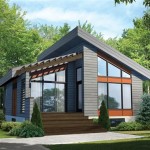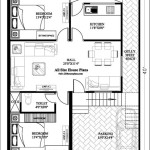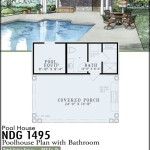House Roof Plane: Essential Aspects
The roof plane is a crucial element of any house, providing protection from the elements and defining the home's overall aesthetic. Understanding the different types of roof planes and their advantages and disadvantages can help homeowners make informed decisions about their roofing systems.
Types of Roof Planes
Gable Roof: A gable roof is characterized by two sloping sides that meet at a ridge. It is the most common type of roof plane and offers excellent drainage and snow shedding capabilities.
Hip Roof: A hip roof has four sloping sides that meet at a central point. It provides superior strength and wind resistance compared to gable roofs.
Mansard Roof: A mansard roof has four sloping sides, with the lower slopes being steeper than the upper slopes. It adds extra space and can be used for additional living areas.
Flat Roof: A flat roof has a slight slope for drainage. It is commonly used in commercial buildings but can also be found in residential homes for a modern and minimalistic look.
Advantages and Disadvantages
Gable Roof: Advantages: Excellent drainage, snow shedding, easy to install. Disadvantages: Can be prone to wind uplift at the eaves.
Hip Roof: Advantages: Superior strength, wind resistance, aesthetically pleasing. Disadvantages: More complex to install, higher cost.
Mansard Roof: Advantages: Extra space, architectural interest. Disadvantages: Complex design, more expensive to build.
Flat Roof: Advantages: Modern appearance, easy to access for maintenance. Disadvantages: Potential for water pooling, limited drainage.
Roofing Materials
The choice of roofing material depends on factors such as climate, durability, and budget. Common options include:
Asphalt Shingles: Affordable, easy to install, and available in various colors.
Metal Roofing: Durable, long-lasting, and energy-efficient.
Tile Roofing: Prestigious, fire-resistant, and high-maintenance.
Slate Roofing: Natural, durable, and expensive.
Maintenance and Inspection
Regular maintenance and inspection of the roof plane are essential to ensure its longevity. Homeowners should:
- Inspect the roof annually for any signs of damage, such as missing or cracked shingles.
- Clean gutters and downspouts regularly to prevent clogs.
- Re-seal or replace flashing around chimneys, vents, and skylights as needed.
Conclusion
The roof plane plays a pivotal role in a home's protection, aesthetic appeal, and energy efficiency. By understanding the different types of roof planes, their advantages and disadvantages, and proper maintenance practices, homeowners can ensure a durable and functional roofing system for their home.

Roof Plans Google Search Roofingideas Truss Design Hip Building House Designs

Jochesxp I Will Draw Your Floor Plan Elevations Roof Or Sections For 20 On Fiverr Com Plans How To

House Roof Autocad Design Plan Floor

Diffe Types Of House Plan Drawings

Small House Design Plans 5x7 With One Bedroom Hip Roof Tiny

Roof Plan Of The House With Detail Dimension In Autocad Which Provides Foundation Structure Open Plans Flat Design

Introduction To Roof Plan Complicated Made Easy

House Roof Plan In Dwg File Cadbull

Hip Roof House Plans Roofgenius Com

First Floor Plan Ground And Roof Obici House Carriage 1400 Sleepy Hole Road Suffolk Va Library Of Congress








